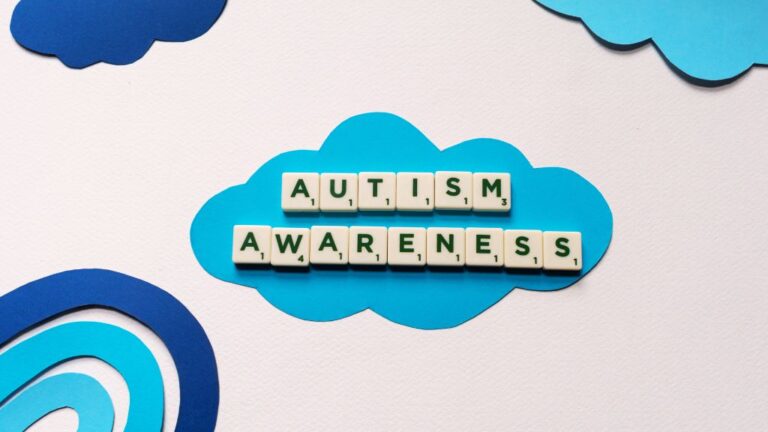Table of Contents
Why Is World Autism Awareness Day Significant?
World Autism Awareness Day (WAAD) is not just any date on the calendar. The day represents a global initiative to promote understanding, celebrate neurodiversity, and educate others about autism spectrum disorder (ASD).
Many new to this internationally recognized day ask: Why is World Autism Awareness Day important?
World Autism Awareness Day is significant because society often values conformity and imposes limitations on what is considered “normal.” These criteria can make many individuals who do not fit traditional molds feel marginalized or excluded.
This exclusion includes individuals with autism, who may struggle with social interactions or meeting societal expectations in ways that many others do.
According to Autism Speaks, April 2nd serves as a reminder for families, allies, and individuals affected by autism to recognize the strengths of neurodivergent individuals.
This day also encourages us to continue breaking down barriers that can hinder those with differences. Doing so ensures everyone has better chances to thrive throughout life.
A lack of support or inclusion can harm a person’s life in lasting ways. This impact can be hard to change and may lead to long-term harmful effects, making autism awareness even more essential to address.
This blog post from ABA Centers of Connecticut will discuss the importance of World Autism Awareness Day and provide a brief history of its origins. We will also explore practical ways families can participate in celebrating.
Finally, we will examine how ABA therapy, also known as applied behavior analysis, benefits many with autism every single day.
So please keep reading to learn more about this important day!
Click here to learn how the expert team at ABA Centers of Connecticut supports many neurodivergent families through compassionate ABA care and innovative diagnostic options.
Visit us here to read other blogs about neurodiversity, parenting a child with autism, and understanding how ABA works.
Comprehending Autism Spectrum Disorder and Its Impacts
Autism spectrum disorder is a developmental condition that often affects core areas of an individual’s life. The condition can show up in many ways, affecting those with it to different degrees.
Many on the autism spectrum may find it challenging to interact with their environment in typical ways, communicate their desires and needs, and process sensory information. These challenges can lead to behavioral difficulties.
Other common traits of autism include but are not limited to:
- Difficulty with social interactions or interpreting social cues
- Fixed routines or focused patterns of interest
- Distinct strengths in areas like memory, attention to detail, or creative thinking
With the right environment and skills, people on the ASD spectrum can share their valuable perspectives and talents. When we include them in adaptive ways and encourage their participation, their strengths benefit their families, communities, and workplaces.
These factors highlight the importance of reliable interventions, autism acceptance, and the need for inclusiveness.
Why We Advocate for Autism Acceptance
Autism awareness campaigns have provided substantial support and valuable information to both neurodiverse and neurotypical families.
Early diagnosis rates are increasing as more parents recognize ASD symptoms, schools identify the specific needs of their students, and families gain better access to life-changing therapies like ABA.
However, awareness is just the beginning.
Advocacy groups, including the autism community itself, are shifting the focus to autism acceptance and less on conformity that fundamentally changes the person. Families now understand that their neurodivergent loved ones need skills, not fixing.
Understanding Awareness and Autism Acceptance
Autism awareness highlights differences, while acceptance actively includes and values them. This shift ensures that individuals with autism are not only supported but also recognized.
Why is autism acceptance so important?
Acceptance fosters inclusion in schools, workplaces, and communities. It challenges preconceived notions and helps eliminate social stigma. With these positive changes, individuals with autism can make real progress throughout their daily lives.
Furthermore, autism acceptance emphasizes celebrating strengths while empathically addressing challenges.
A Brief History of World Autism Awareness Day
In 2007, the United Nations designated April 2nd as World Autism Awareness Day to raise global awareness about ASD while encouraging helpful dialogue and understanding.
Since its inception, WAAD has inspired global campaigns, such as “Light It Up Blue.” During these events, communities light up landmarks in blue to show their support for people on the autism spectrum.
Events like these not only increase the visibility of the condition but also unite people with the common goal of promoting a more accepting society.
How Families Can Get Involved with WAAD
Many families search for ways to celebrate World Autism Awareness Day while having fun, staying safe, and engaging their communities.
Here are some ideas to encourage meaningful conversations and promote autism awareness:
- Educate Yourself: Learn about autism by reading trustworthy books, articles, scholarly journals, or reputable blogs.
- Advocate Locally: Encourage autism-friendly strategies in your child’s school, workplace, or local events.
- Share Stories: Respectfully share posts or interviews on social media to amplify ASD voices and their families.
- Participate in Events: Attend walks, fundraisers, or webinars hosted by autism organizations to show support, learn more, and expand your community reach.
- Promote Early Intervention: Encourage families in your community to consider early intervention models, including early intervention ABA therapy.
The Role of ABA Therapy in Supporting Neurodivergent Families
Many families seek ABA therapy to help their children, as well as themselves. This approach to behavior management helps many acquire helpful strategies for navigating life with autism.
ABA professionals assist their clients in improving communication, developing life skills, and establishing autonomy.
Other benefits of ABA include but are not limited to:
- Support for sensory processing and behavioral challenges
- Help in creating adaptable routines for everyday living
- Breaking down complex tasks into digestible steps with errorless learning and positive reinforcement techniques
ABA is a powerful, research-based approach that is continuously evolving as our understanding of ASD improves.
Building a Brighter Future Together with World Autism Awareness Day
Autism awareness is just the beginning. By emphasizing acceptance, inclusion, and advocacy, we can all help create a brighter future for individuals with autism and their families.
Whether you are a parent, educator, or ally, your efforts toward autism acceptance can make a significant difference in fostering an environment where everyone feels valuable for who they are despite their differences.
Let’s continue to learn, practice acceptance, and work toward a more inclusive future for all.
More About ABA Care with ABA Centers of Connecticut
If you are looking for supportive autism services or ABA care, ABA Centers of Connecticut can help neurodiverse families receive the essential support they need.
We proudly serve Fairfield and Hartford counties in the state.
At ABA Centers of Connecticut, our ABA experts create individualized ABA therapy plans for each client. This process ensures that every program we develop aligns with the unique ASD strengths and challenges of the child or teen we are working with.
Using a compassionate, evidence-based approach, we empower our clients to achieve important milestones while fostering confidence, joy, and skills that promote independence.
To learn more about us and connect, please call (844) 395-0448 or via this online link.
Don’t hesitate to find out how ABA therapy can transform your family’s life today.









